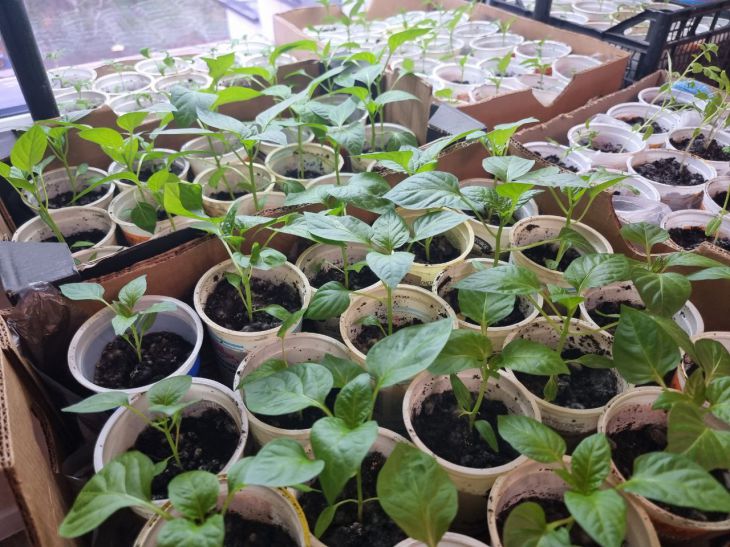10 tips for caring for stretched seedlings: how to restore their healthy growth
In recent years, more and more gardeners have been faced with the problem of their seedlings becoming elongated.
This occurs when plants grow too quickly, their stems become long and thin, and the leaves become small and pale.
Such seedlings will not be able to withstand transplantation into open ground and will not produce a good harvest, says Anastasia Kovrizhnykh .
To avoid this problem, you need to take several measures. Here are some tips that will help you grow healthy and strong seedlings.
Choose the right place for seedlings
The seedlings should be in a bright place with enough light. If you are growing seedlings indoors, use artificial lighting.

Provide warm temperatures for the seedlings - it should not be below 20 degrees Celsius.
Use the right soil
Seedlings should be grown in soil that contains sufficient nutrients.
If you use ready-made soil from the store, make sure it is suitable for growing seedlings. If you prepare the soil yourself, add compost, humus or other sources of organic fertilizer to it.
Water the seedlings correctly
Seedlings need to be watered regularly, but not excessively. Excessive watering can lead to oversaturation of the soil with moisture, which can lead to root rot and other problems. Water the seedlings only when the soil has dried out by 2-3 centimeters.
Keep seedlings away from cold drafts
Cold drafts can cause seedlings to stop growing and become ill. Place the seedlings in a warm place and provide adequate ventilation.
Remove weak plants regularly.
If you find that some plants are growing slower than others, they should be removed to avoid robbing other plants of nutrients. If plants are too close together, they will compete for food and water, which can lead to slower growth and reduced yields.
Ventilate the seedlings
Seedlings need fresh air to grow healthy. If you are growing seedlings indoors, open windows or use a fan to ensure adequate air circulation.
Maintain optimal air humidity
Seedlings need a certain level of air humidity to grow healthy. If the humidity is too high, it can lead to the development of fungal diseases. If the humidity is too low, the plants can dry out. Use special humidifiers to maintain optimal humidity.
Feed the seedlings
Although seedlings get their nutrition from the soil, they may need additional nutrients. Use a seedling fertilizer to ensure adequate nutrition.
Reduce the amount of light
If plants receive too much light, they may begin to grow too quickly. If you use artificial lighting, make sure the plants receive only the necessary amount of light. If the plants are grown in the sun, move them to partial shade.
Don't transplant seedlings too early.
If you transplant the seedlings too early, they may not survive. Wait until the plants reach a certain size and are ready to be transplanted outdoors.
In general, healthy and strong seedlings are the result of careful care and proper cultivation. Follow these tips to get a harvest of healthy and strong plants.
Earlier we told you how one common weed can help in the fight against cabbage moths and caterpillars.
